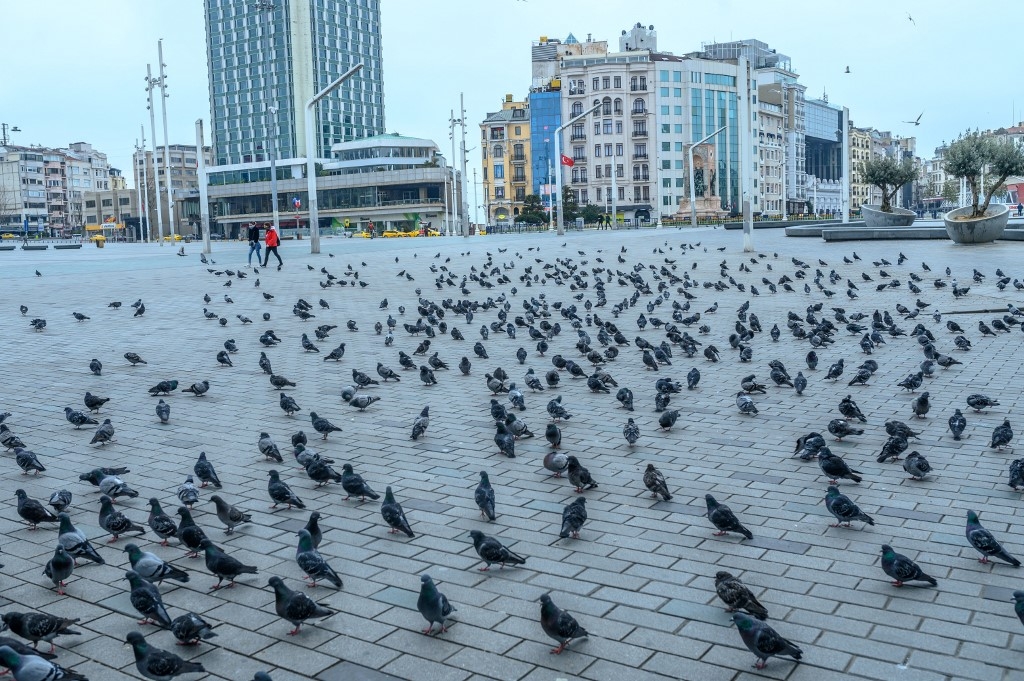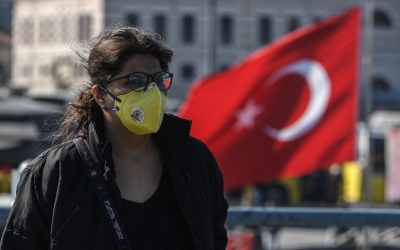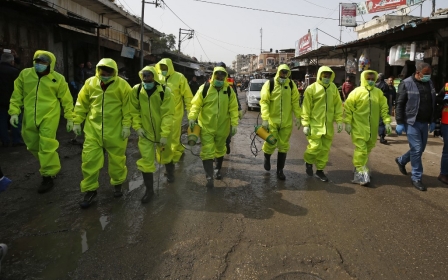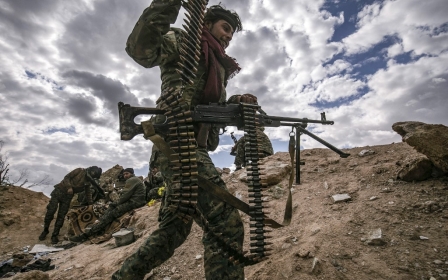Arabic press review: Coronavirus means crisis for Arab workers in Turkey

Arab businesses and workers in Turkey face crisis
Arab companies and workers in Turkey are facing disaster, according to London-based newspaper Al-Quds Al-Arabi, as the coronavirus pandemic hits hard.
Most Arab businesses in Turkey operate in the fields of trade, tourism, hotels, transportation, restaurants, entertainment services and medical tourism.
These are the most affected sectors in Turkey at the moment, according to the report.
Most of these workers, along with the investments and projects, have stopped completely, while some companies continue to operate at a greatly reduced rate.
According to the newspaper, even those still operating are expected to cease activity completely in the coming days.
The report added that it expected many of the companies and major projects to suffer significant financial difficulties, being forced to either declare bankruptcy or wait for government support packages that have begun to be announced, especially if the crisis persists for many months.
Tens of thousands of young Arabs who moved to Turkey hoping to improve their life and build a brighter future have reportedly "completely lost their source of income".
Most of those employed work on a daily or weekly basis and do not have health insurance or social security benefits that guarantee the continuation of their monthly salaries during the period of their compulsory suspension from work, according to Al-Quds Al-Arabi.
Egyptian newspapers cease publication
A number of newspapers in Egypt have ceased publishing due to the coronavirus pandemic, which has also caused the disruption of many other sectors of the economy in the country, according to a report by Arabi21.
The closures have raised concerns over the carrying out of large-scale layoffs of workers in several news organisations.
In interviews with Arabi21, a number of journalists have called for the necessity of preserving the rights of workers, demanding that the Journalists Syndicate takes steps to provide financial security for those laid off.
Iraq faces financial crisis after drop in oil prices
Iraqis are anticipating a financial disaster after the sharp drop in oil prices, which provides the country's financial budget with about 90 percent of its total annual income, according to the Saudi newspaper Asharq Al-Awsat.
Mustafa Jabbar Sanad, head of the follow-up unit in the Iraqi prime minister’s office, warned that “Iraq's monthly income from oil is currently estimated at $1bn only, while the salaries of employees amount to three and a half billion dollars per month,” according to the newspaper.
Iraqis have speculated that the government will resort to printing more cash in order to secure its needs and cover the revenue deficit. However, the Central Bank of Iraq (CBI) denied this in an official statement.
Despite the denial, Sanad considered that printing the currency was “a last resort,” the newspaper reported.
EU 'excludes Algeria' from coronavirus aid
The European Union has excluded Algeria from the financial aid it provided to a number of Arab countries in order to help them face the spread of coronavirus, according to the Algerian newspaper Echorouk.
The EU has provided financial aid to Tunisia and Morocco to combat the spread of the pandemic, with Morocco obtaining 450m euros from the European fund for fighting the spread of coronavirus, while Tunisia received 250m euros, according to the newspaper.
Sources have not yet indicated whether Algeria will obtain financial assistance from the EU, although Algeria has more cases than its eastern and western neighbours.
Algeria has more than 454 confirmed cases so far, 29 of whom have died, and most of whom were infected as a result of contact with Algerian migrants returning from EU countries, according to Echorouk.
Arabic press review is a digest of reports that are not independently verified as accurate by Middle East Eye.
Middle East Eye delivers independent and unrivalled coverage and analysis of the Middle East, North Africa and beyond. To learn more about republishing this content and the associated fees, please fill out this form. More about MEE can be found here.





